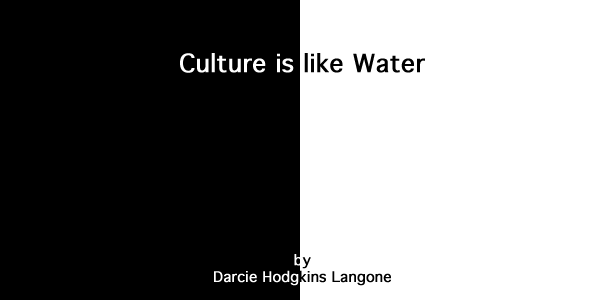
![]()
| home | mail | news | features | nonsense |
 |
|
|
Those fault lines are not however, what we have been led to believe. In the United States, even those racial and ethnic communities that remain apart do not completely prevent “mixed” relationships and in fact, this ethnic variety has led to the development of a particular culture in the United States. Understanding culture requires some basic knowledge of anthropological and sociological methodology. To quantify culture, we must examine everything from food, music, clothing and dress codes, and family life to macro-events such as political economies, economics, philosophical expectations, ethnic languages and histories, democracy versus republicanism, geography, and more. Within this large frame-work it is clearly true that the United States has a culture and that it is unique. So where are all the non-white American skeptics? This question has been asked many times and in many venues. It is a question that reflects the lack of insight that humans have into their own cultures, insight only gained when something within that culture begins to interfere with the deep desires and needs of an individual or sub-group within that culture. There has been much debate on, for example, the Skepchick.org Race, Culture, and Skepticism discussion board about the lack of non-white representation within our sub-culture and questioning the motives of cultural grouping based on race. In fact, many responses on the boards claimed that there is no American culture. This may appear truthful to those who hold to it, but it is false. In reality, humans and culture are like fish and the water; we can’t see the invisible context of our own lives. One effort to address past inequities is the enforced diversity workshops “offered” in corporations and institutions of higher education. From the point of view of a skeptic, these workshops, and the theories upon which they are built, can only be viewed as a new type of religious conviction and one that will lead to a balkanization based on defective knowledge. The defect is this…America does have a culture, and all Americans contribute to it. John Edward Philips, an associate professor of law and an American living and teaching in Japan, has written extensively on American culture and points to the ongoing debate between the theories of anthropologist Melville Herskovits and E. Franklin Frazier as the embodiment of America’s confusion regarding its own culture. Philips asks pertinent questions such as whether classical music, with its European roots, or jazz, a distinctly black American phenomenon, represents United States culture. Surely though, after five hundred plus years on the North American continent, those musicians of African descent who created jazz have earned the right to be considered fully American, regardless of whether they also consider themselves part of the African Diaspora? So what has all this to do with skepticism? Just this…before the people of the United States continue to engage in questioning why there are not more black skeptics, we must engage in a full investigation of what it means to be American and only then can we fruitfully engage in further study of “minority” skeptics. Non-white and white people of the United States function under an umbrella of common cultural expectations—hard work, individualism, self-support, and perhaps the most fundamental value of the United States, choice. While the church still enjoys a vital role as a fundamental social structure for black America, I would argue that this does not prove a lack of black American skeptical thought, but rather that the church still serves a purpose for black communities. This returns us to the sins of America’s past…yes, it has been over forty years since the United States legally ended the majority of its racist policies. But that is only time enough for one generation to pass. Let’s not presume that the lexicon of religion, the social structure of the church, or anything else will prevent non-whites from engaging with us in skeptical thought, but instead remember that fault lines leave open the continual possibility of movement. Darcie Hodgkins Langone is a writer and grad student living in Washington State. When she is not at her day job, editing publications for a community college, she can usually be found lecturing her children on developing morality without religion or looking for a place to hide and read a good book. |
ISSUE 3 CREDITS Skepchick-in-Chief Managing
Editor
News Editor Contributing
Writers Photos
and Graphics |
|
copyright
2006 Skepchicks Limited |
||